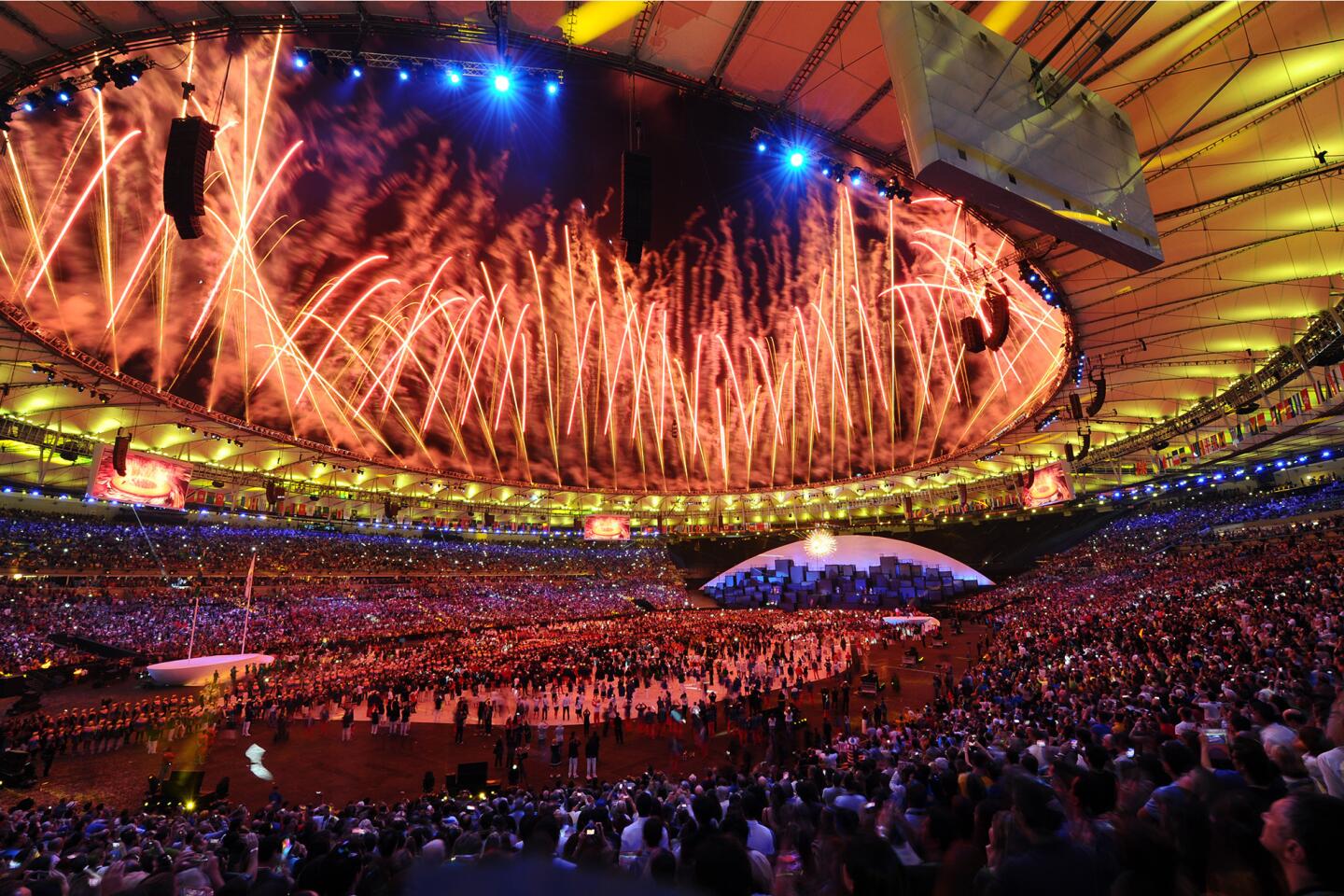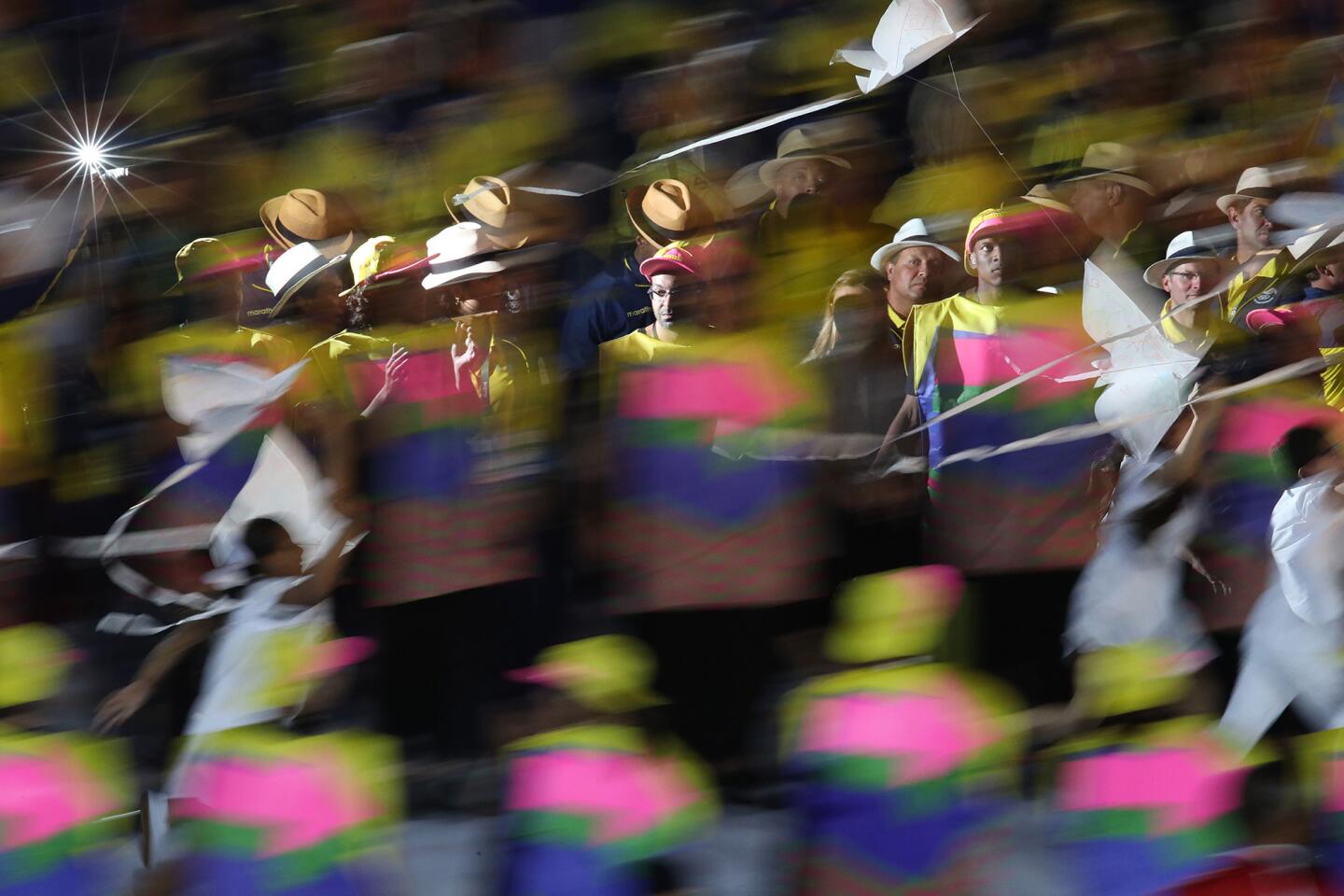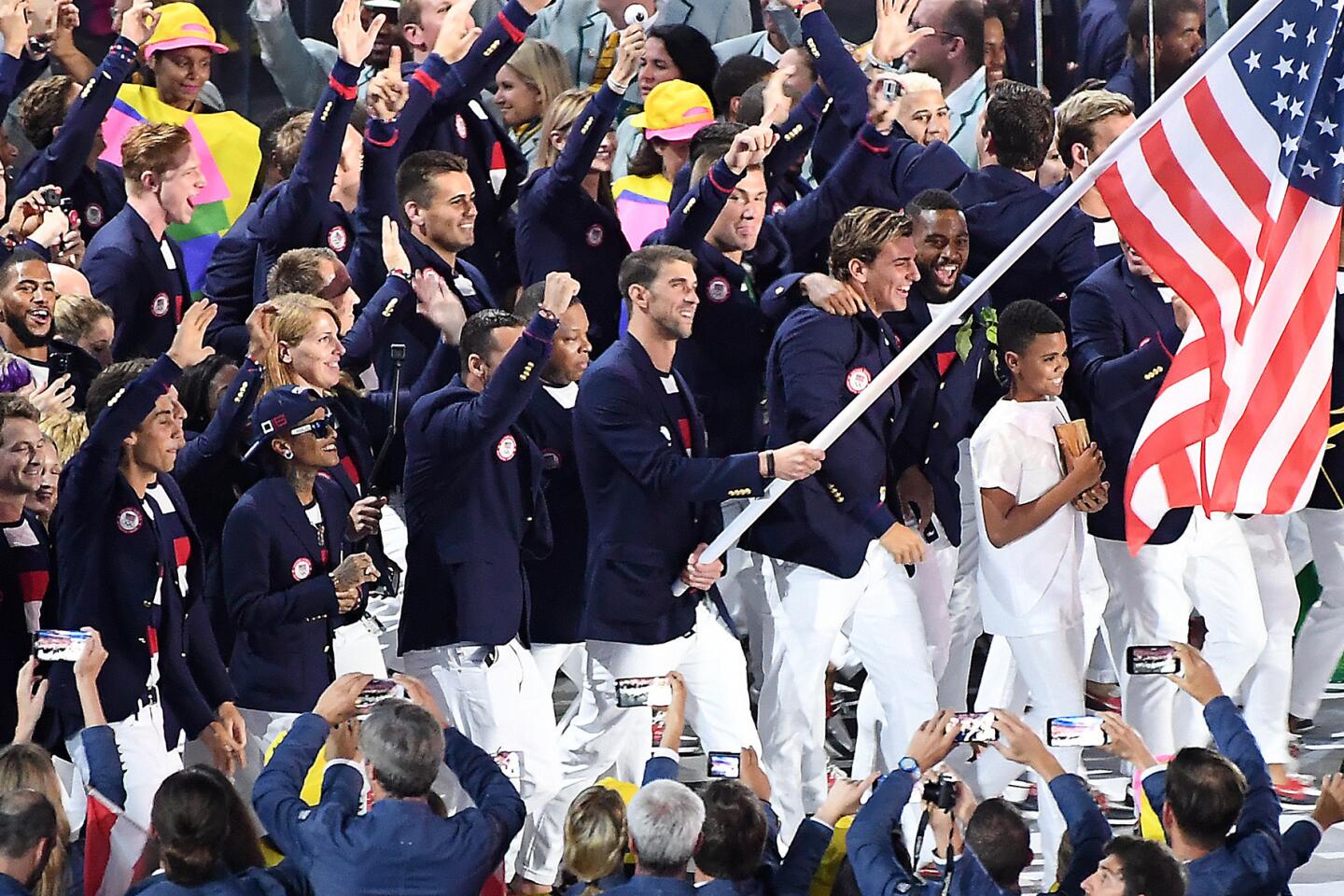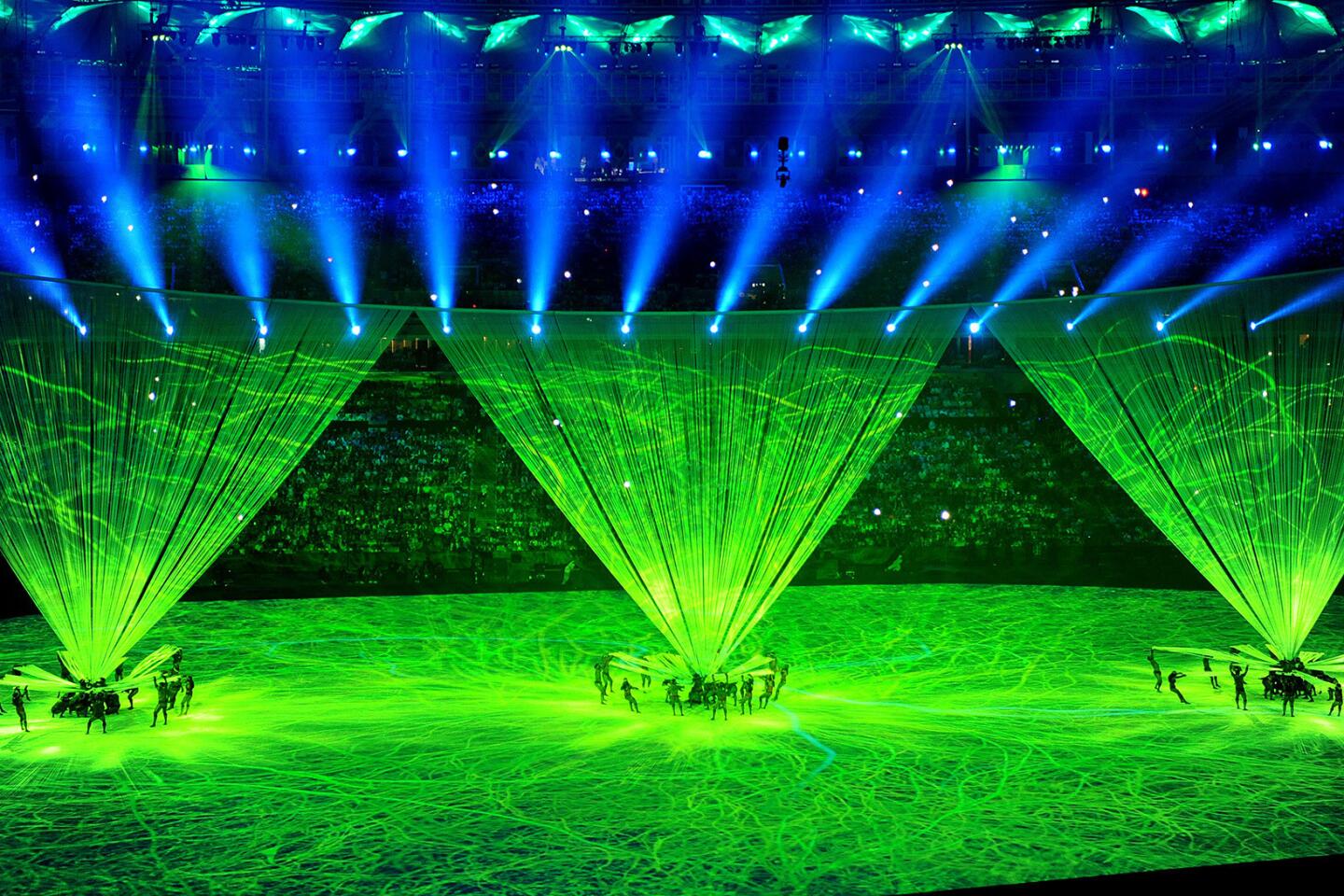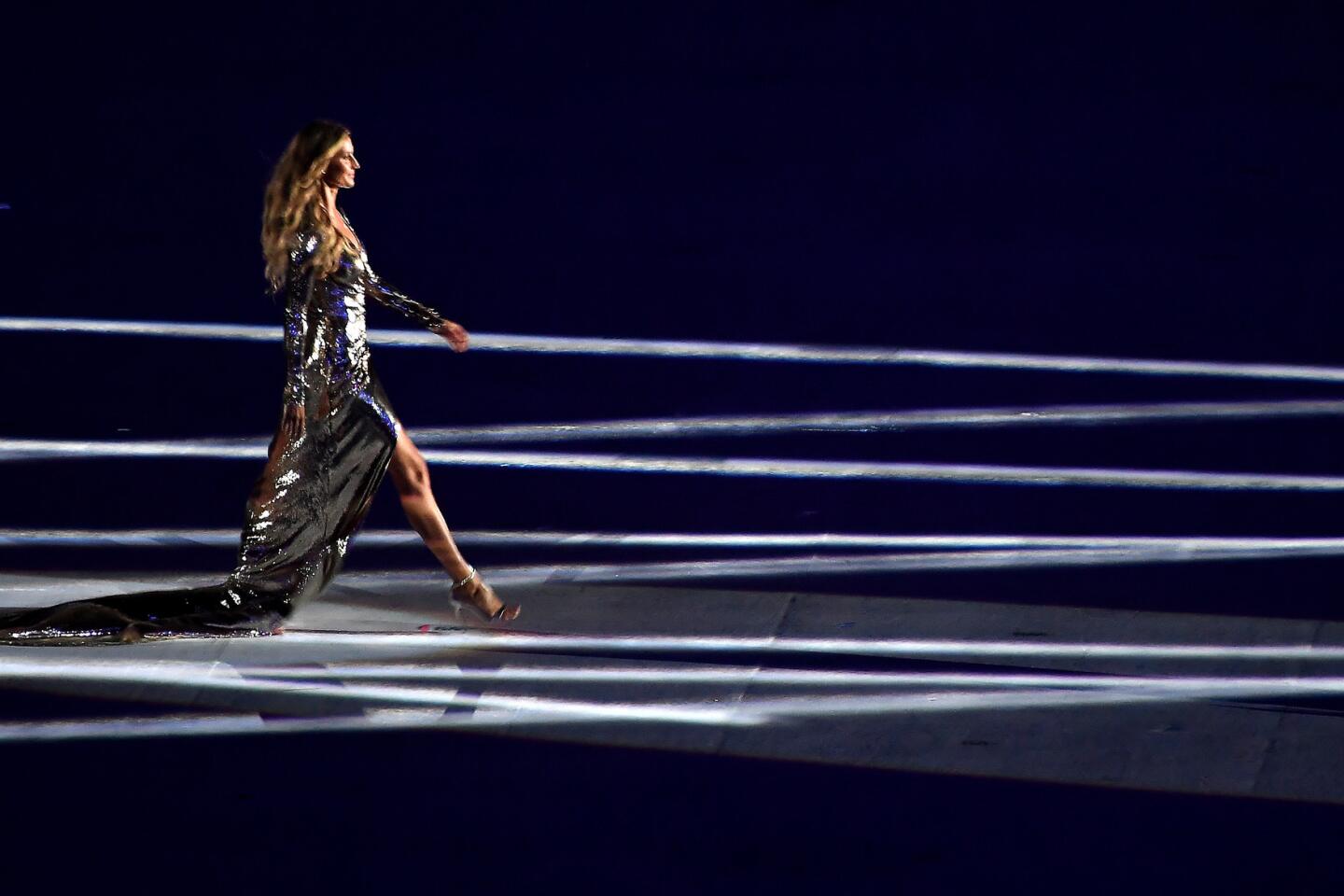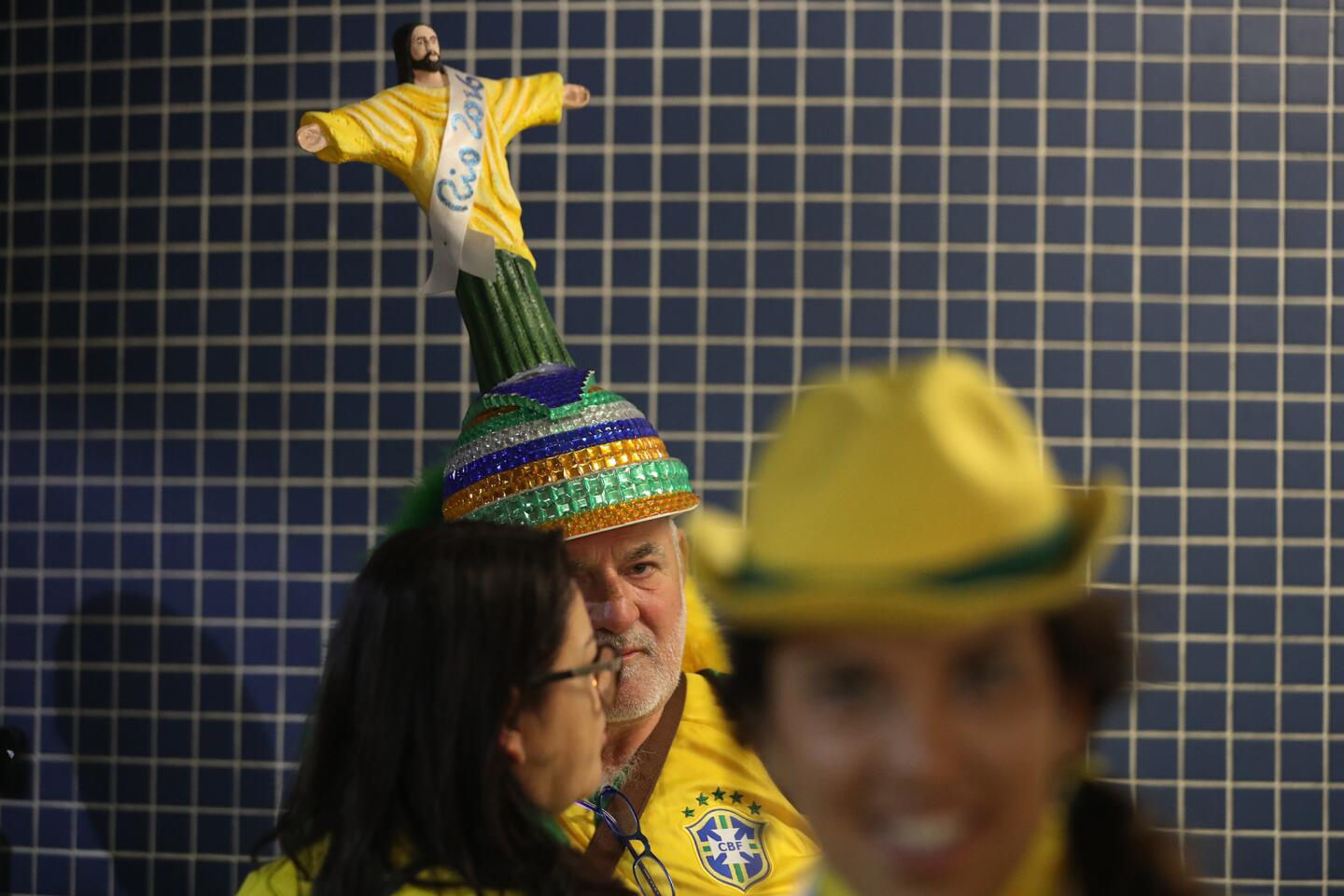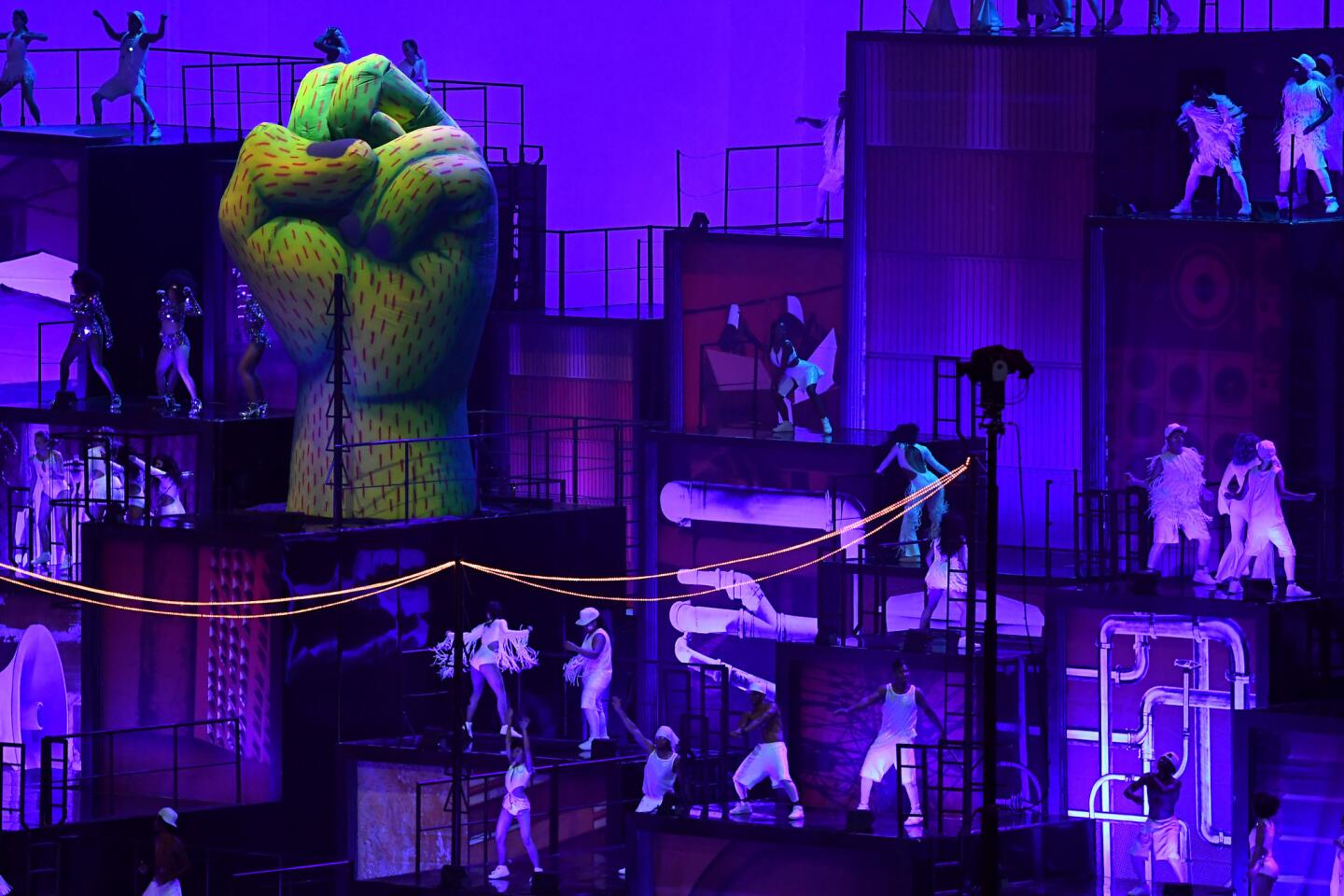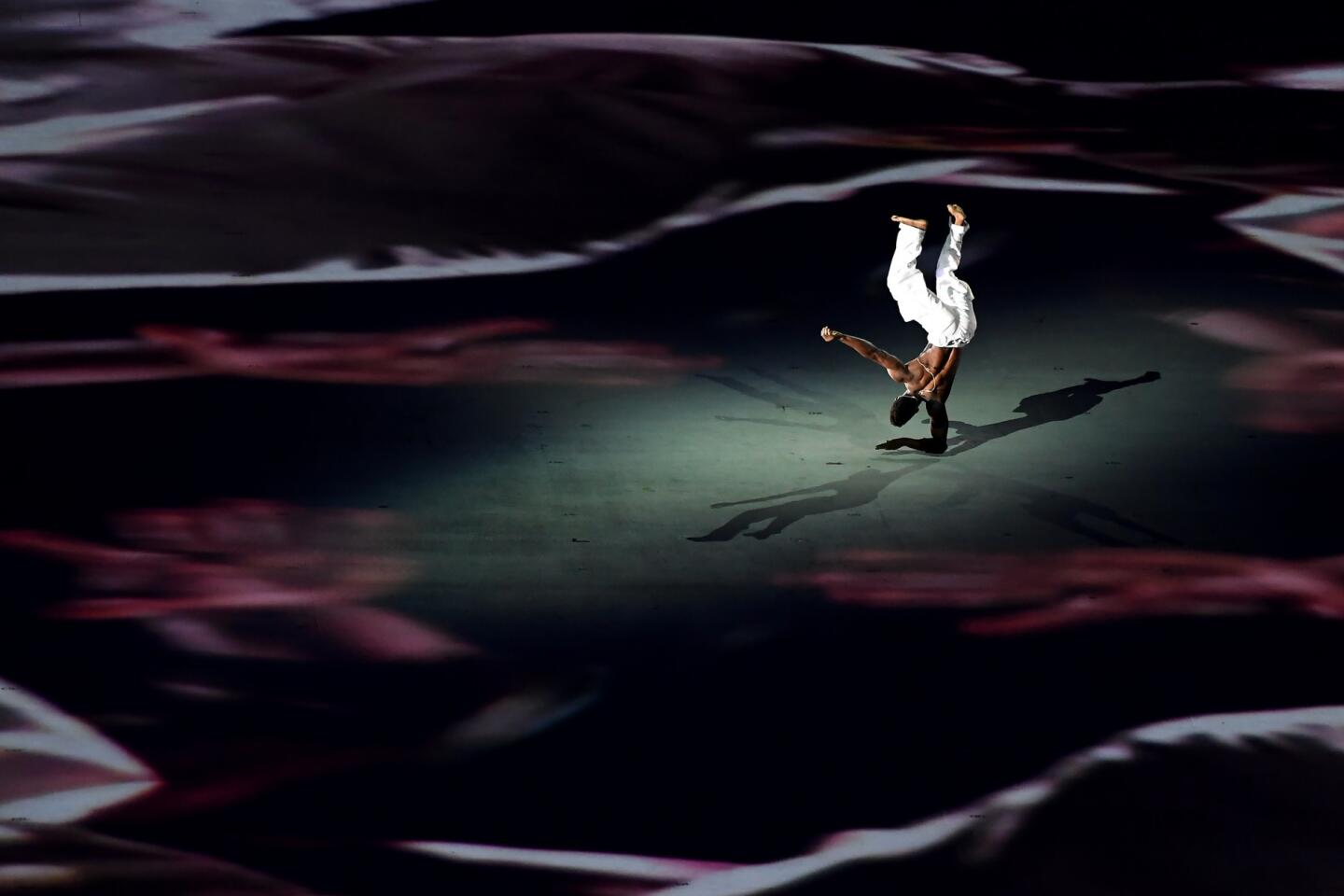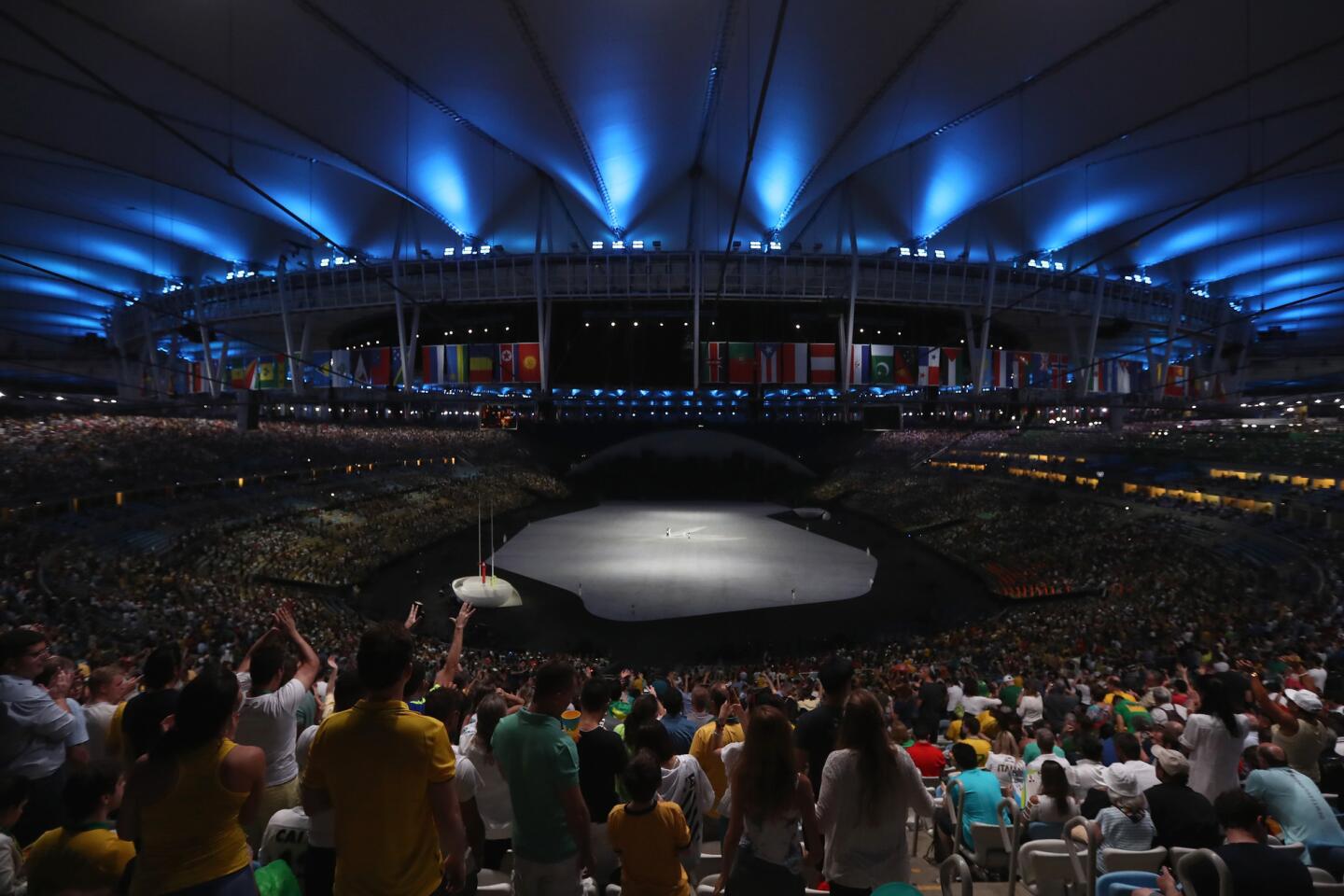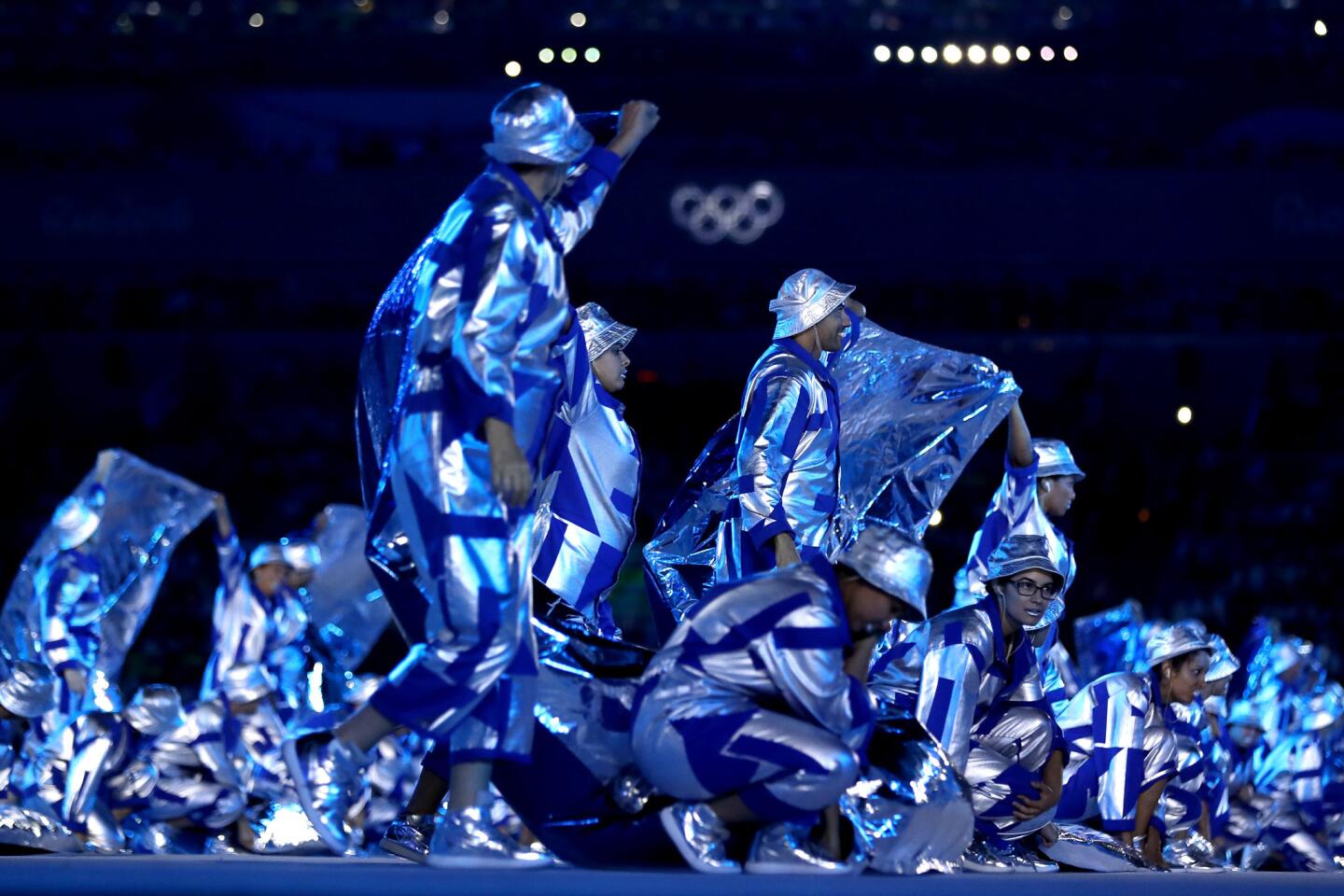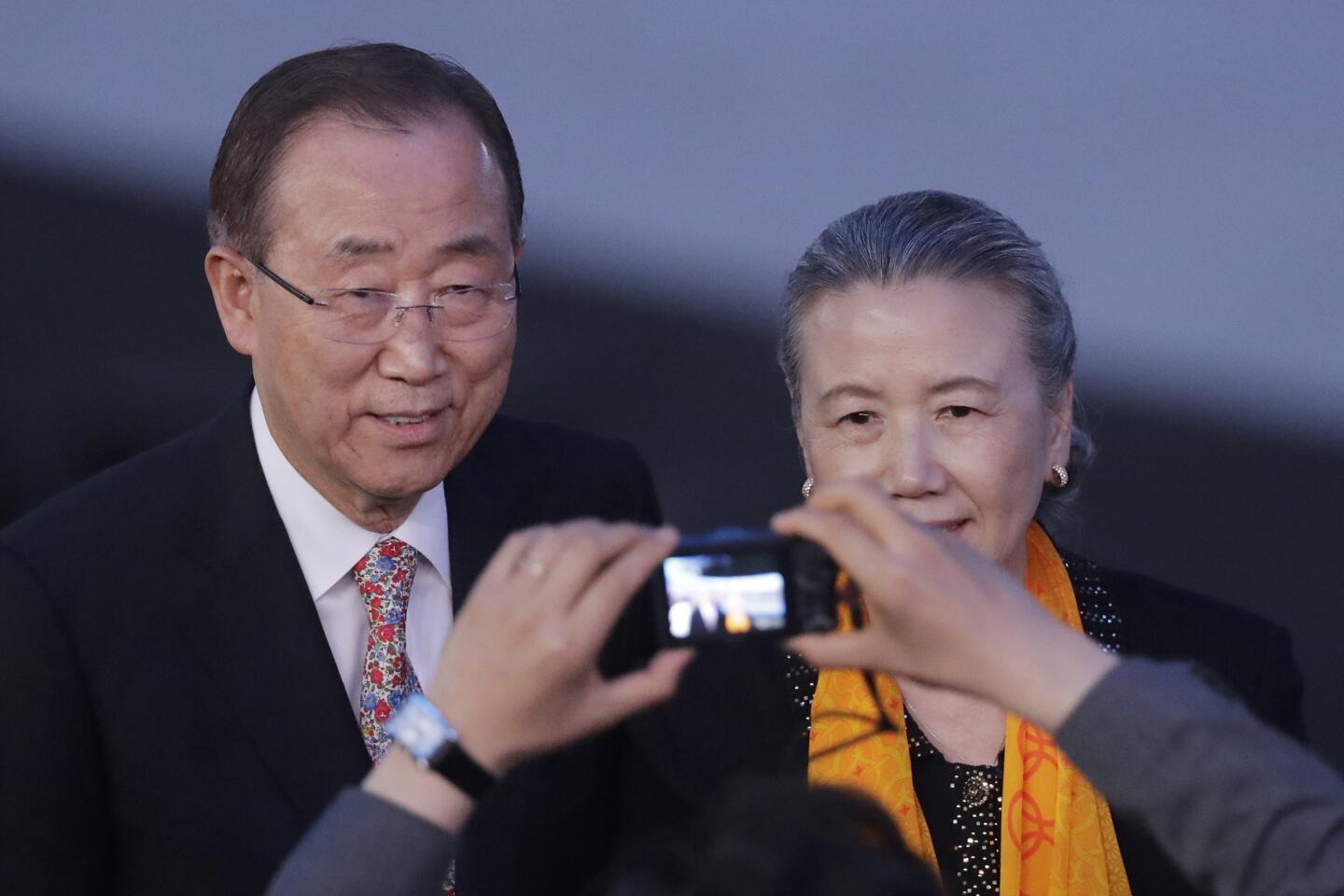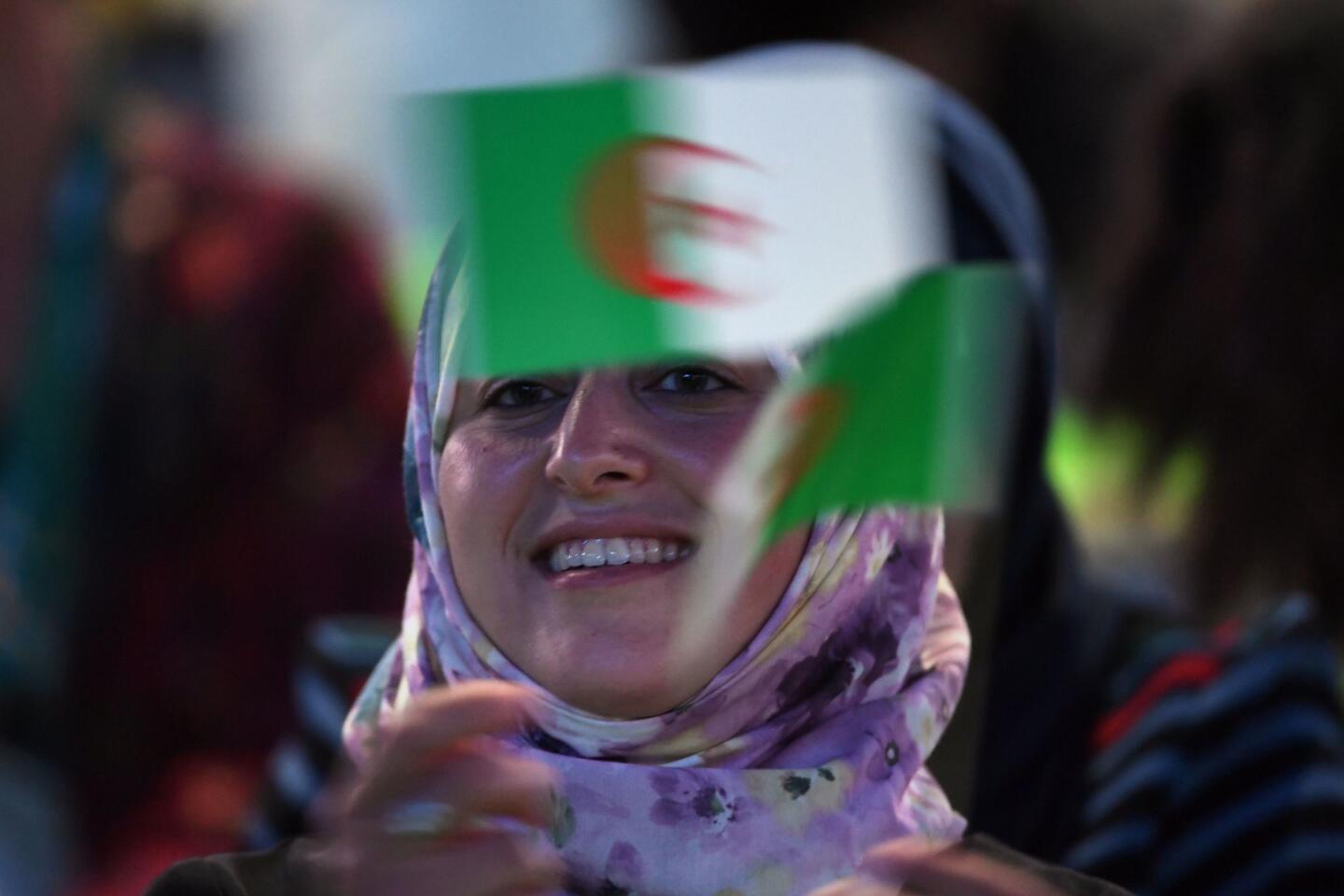Column: Forget the problems, Brazilians open Games with a party
- Share via
Reporting from RIO DE JANEIRO — Burdened with the most beleaguered Olympics forecast in history, Brazil opened its Games on Friday night with a carefully planned, prolonged response featuring a powerful two-syllable proclamation.
“Par-ty!”
With the world around them wringing its hands over fears of dirty water, street violence and the Zika virus, the Brazilians responded with heartfelt singing, nimble dancing, a stadium-rocking entrance scene, and one outrageous strut into opening ceremony legend.
Early in the evening, out of nowhere but apropos of everything, tall and tan and young and lovely Brazilian supermodel Gisele Bundchen s-l-o-w-l-y strolled the length of the Maracana Stadium floor in a long silver gown to the piano strains of the iconic song, “The Girl from Ipanema.’’
It would have been corny, except the music was played and sung by Daniel Jobim, grandson of the song’s late composer Antonio Carlos Jobim. It would have been silly, but many of the 60,000 spectators emotionally clapped and sang along in Portuguese.
It was Brazil being Brazil, a poignant moment of pride that matched any victory celebration from Bundchen’s husband Tom Brady, and just one of many scenes from an evening filled with unbridled joy.
There was a hometown march like no other, the swaying and skipping Brazilian team entering the stadium waving straw hats and shedding blue blazers, the legendary Brazilian song “Aquarela do Brasil’’ filling the air and thousands of spectators doing some form of samba.
There was a caldron lighting that was missing a big name but contained a huge heart. It did not involve the ill Pele. Instead the honor went to runner Vanderlei de Lima, who was leading the 2004 marathon in Athens when he was attacked by a spectator. He lost his lead, but refused to quit and finished third.
The evening ended with the usual fireworks, more wild dancing, and an impromptu song by thousands of Brazilians who didn’t want to leave, and who can blame them?
Come Saturday morning the competition officially begins, and it could be messy. There could be issues with drugs and sewage and local apathy and a continuation of a general chaos that has thus far enveloped the overmatched Brazilian organizers.
But give that crazy bunch credit, at least for this night they created pure fun, even when it wasn’t supposed to be fun.
“The best place in the world is here and now,’’ announced the furiously gesturing Carlos Nuzman, president of Brazil’s Olympic committee, during his traditional speech. “Those who do not know us, have doubted. Those who do, are happy.’’
Yet those doubters became happy moments later when Nuzman stumbled over his words and congratulated International Olympic Committe President Thomas Bach because he, “Believed in the sex … success of the Rio 2016 games.’’
Organizers running on a budget warned that it wasn’t going to be fancy, and it wasn’t. There was none of the science fiction that marked the memorable Beijing opening ceremony in 2008, or the elaborate staging featured in London in 2012.
Organizers claimed it would reflect the, “low-tech spirit, the richness of Brazilian culture,’’ and it did that exactly, in the most brilliant of ways, trading flashy for soulful, and techno for real, and somehow it worked.
Dirty water? The ceremony began with a video that began with swimmers plowing through the ocean.
Economic troubles? One long dance sequence took place in giant boxes that represented the city’s famed favelas.
Checkered past? The Brazilians acknowledged their history of slavery and the African impact on their culture by including a parade of actors trudging with weights on their legs to represent shackles.
But as their past became their present, hundreds in brightly colored wigs and frocks eventually filled the floor with three hours of bouncing and boogeying. It was a show that contained so much samba, so much bossa nova, so much uninhibited movement, by the time the stars of the show entered the building, the parade of athletes became a dance of athletes.
From heavyset Armenian athletes shimmying in tan blazers, to a flag bearer from Kiribati doing full spins, to one Lithuanian doing what appeared to a solo salsa, it seemed like the jocks have never had more fun. The Uganda delegation even did what appeared to be a line dance, while their athletes literally skipped behind them.
At times it appeared less like an opening ceremony than a closing one, a party that seemingly had none of the stress that surely will follow the athletes, and these Games, for the next two weeks.
Then there was Team USA, which looked like shiny barber shop poles in their tight red-white-and-blue shirts and blue blazers. The Americans didn’t dance much, appearing preoccupied with what has become their Olympic tradition of raised smartphones and snapped selfies.
As usual, the fans cheered for everyone — especially the bare-chested, grass-skirted, oiled-up Pia Taufatofua, the Tonga flag bearer who hopefully wears more clothes when he competes in taekwondo. Perhaps most compelling was the reception given a depleted 271-person Russian delegation that has lost about 100 athletes to drug bans and probably shouldn’t have any athletes here after the revelation of their state-backed doping schemes.
The crowd roared for the Russians. Some even stood for the Russians. It’s hard for an American to criticize such cheers after living through all those standing ovations for Barry Bonds, but still.
A huge prolonged cheer also greeted the 10 members of newly formed Refugee Olympic Team — athletes who had to flee their war-torn countries and now have no country — but they were just warming up for the final entrance of the host nation.
The evening’s final memories were of the second line from that Ipanema song, the one that captures the mysterious allure of this country and its embracing people.
At least for one night, the world smiled at the passing Brazil Olympics and said, “Ah.’’
Twitter: @billplaschke
ALSO
Six memorable moments from the 2016 Olympics opening ceremony
2016 Summer Olympics: Live coverage from Rio
Forget the problems, Brazilians open Games with a party
